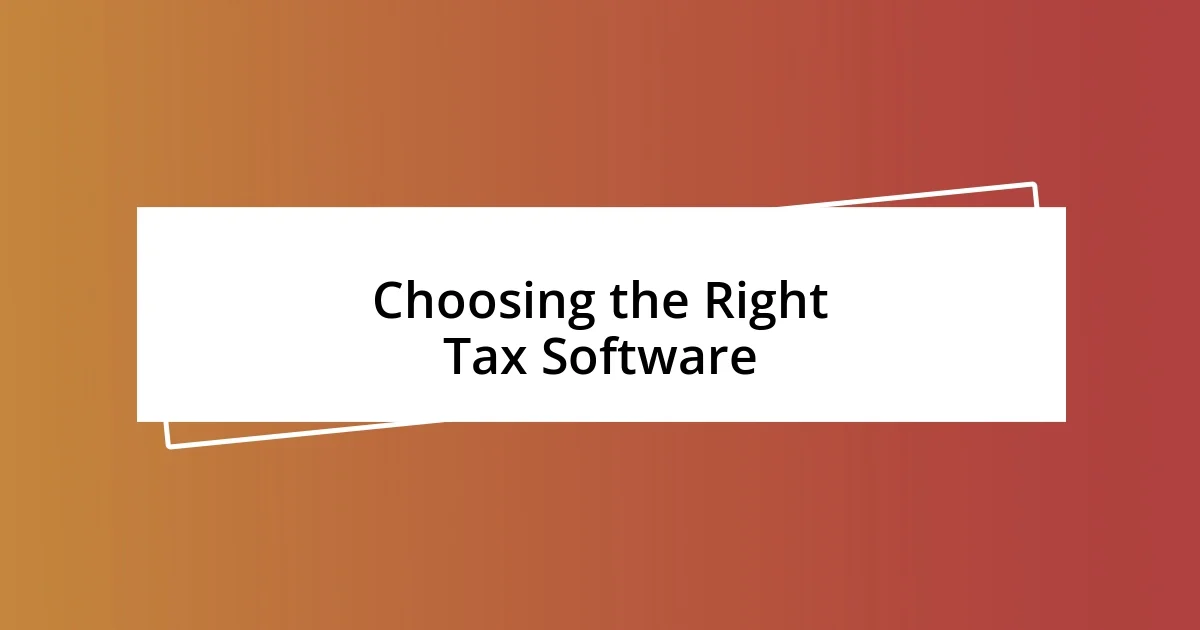Key takeaways:
- Understanding crypto transactions is essential, as selling, trading, or exchanging cryptocurrencies can trigger tax obligations classified as capital gains or losses.
- Effective record-keeping, including tracking transaction dates and amounts, is crucial to avoid mistakes and ensure accurate tax reporting, with tools like crypto tax software being highly beneficial.
- Consulting a crypto tax professional can provide personalized strategies, clarify tax complexities, and help shape long-term investment approaches for optimal tax outcomes.

Understanding Crypto Tax Basics
When it comes to crypto taxes, clarity can often feel elusive, right? I remember the first time I received a 1099-K from an exchange – my stomach dropped. The realization hit me that my digital assets weren’t just fun investments; they came with tax obligations that needed attention. Understanding the nature of these transactions, such as whether you’re selling, trading, or simply holding, is crucial.
Every transaction involving cryptocurrencies can trigger tax implications, typically categorized as capital gains or losses. For instance, when I sold part of my crypto to buy a new laptop, I had to report the gains, even if I wasn’t cashing out into traditional currency. Did you know that simply exchanging one cryptocurrency for another is also taxable? It’s quite a juggling act that requires diligence and record-keeping.
Many overlook the importance of tracking their cost basis—the original value of the asset you’re selling. There were times when I lost track of expenses or dates, and trust me, it made tax season a nightmare! Keeping a meticulous record not only saves you stress but could also help maximize deductions. How do you ensure you’re keeping all your crypto transactions in check? Implementing tools or spreadsheets has been a lifesaver for me.

Identifying Taxable Crypto Events
When diving into crypto, it’s essential to recognize what constitutes a taxable event. I vividly recall the feeling of confusion as I tried to piece together my earnings. The reality hit me when I learned that not just selling but also situations like trading one coin for another or even staking could trigger taxes. I had to change my approach to how I viewed my transactions, treating each as a potential taxable event.
Here are some common taxable crypto events to keep an eye on:
- Selling cryptocurrency for cash or another fiat currency
- Trading one cryptocurrency for another
- Using crypto to purchase goods or services
- Earning interest through staking or lending
- Receiving crypto as payment for services rendered
Each of these events can impact your overall tax liability, and being aware of them has saved me from unexpected surprises at tax time.

Effective Record Keeping Practices
Effective record-keeping practices are vital for any cryptocurrency investor aiming to stay ahead of tax season. From my experience, I found that maintaining a detailed log of all transactions, including dates, amounts, and asset types, proved invaluable. Without this meticulous tracking, I faced the dreaded situation of forgetting key details, which could mean costly mistakes when it came time to file taxes.
A reliable system can make all the difference. I personally prefer using dedicated crypto tax software that automatically pulls transaction data from exchanges. This automation not only saves hours of manual entry but also minimizes the risk of human error. Isn’t it comforting to know that your tools can work just as hard as you do?
| Method | Pros |
|---|---|
| Manual Spreadsheets | Customizable and easy to understand |
| Crypto Tax Software | Automated data retrieval and accuracy |
| Accountant Services | Expertise and peace of mind |

Utilizing Tax Loss Harvesting
Utilizing tax loss harvesting has become a game-changer for me in managing my crypto taxes. This strategy involves selling cryptocurrencies that have decreased in value to offset gains from other assets. I still remember my first year of investing when I missed out on this tactic, facing a hefty tax bill without fully realizing how I could have mitigated it. Why not turn a difficult situation into an opportunity for savings?
When I started actively monitoring my portfolio, I noticed some altcoins plummeting while Bitcoin soared. By selling off those underperformers, I was able to lower my capital gains for the year. It felt almost empowering, as if I had taken control of a daunting tax season. Have you ever thought about how a strategic move like this can impact your tax liability? Trust me; it’s worth keeping a close eye on your investments.
It’s also crucial to understand the timing of your sales. I learned that by strategically selecting which assets to sell and when, I could optimize my tax outcomes for the entire fiscal year. This isn’t just a one-time fix; it requires ongoing attention to your crypto investments. Embracing tax loss harvesting made me feel like I was playing chess instead of checkers in my financial strategy, and the potential benefits are tremendous.

Choosing the Right Tax Software
Choosing the right tax software for your cryptocurrency transactions can feel overwhelming. I can personally attest to how the wrong choice can lead to frustration. During my initial forays into crypto trades, I tried a less familiar platform and quickly found myself lost in its functionalities, which only added stress as tax season approached. Have you ever felt like you’re navigating a labyrinth just to find a way out?
What I discovered that made a difference was software geared specifically toward cryptocurrencies. When I switched to a more intuitive platform, I experienced an almost immediate relief. It auto-imported my transaction data, and I didn’t have to second-guess whether the calculations were accurate. It was liberating, like finally having a reliable map to guide me through a complicated terrain.
Beyond ease of use, consider the software’s features. I recommend prioritizing those that handle various assets and provide detailed reports. One year, I made the mistake of skimping on features simply for a lower price, only to end up with incomplete data at tax time. Trust me; you’ll want a solution that not only simplifies your reporting but also gives you peace of mind knowing you haven’t let anything slip through the cracks. Have you ever thought about how important it is to feel secure when filing your taxes? The right tax software can make that happen.

Consulting a Crypto Tax Professional
Consulting a crypto tax professional can be one of the best decisions I’ve made in navigating the complexities of cryptocurrency taxes. Early on, I grappled with uncertainties about which transactions were taxable and how to classify my trades. I remember sitting down with a tax professional who not only clarified my confusion but also provided tailored advice on the specific strategies I could utilize to optimize my situation. Have you ever felt overwhelmed by the intricacies of tax laws? Believe me; it can feel like a weight lifted when you have an expert on your side.
What I’ve realized is that the insights gained from these consultations often extend beyond mere tax preparation. A good crypto tax pro doesn’t just crunch numbers—they share invaluable perspectives on how to manage your investments throughout the year. I recall a conversation where my consultant highlighted the significance of staying organized and taught me methods to track my trades effectively. It was a game-changer; how many of us remember every single transaction we make in this fast-paced market? It’s practically impossible without a system in place!
Beyond immediate tax savings, having a professional in your corner can proactively shape your long-term strategy. After consulting with mine, I felt much more confident and informed about potential pitfalls and opportunities as the crypto landscape constantly evolves. They helped me understand not just the numbers, but also the bigger picture—regulations, compliance, and new developments in tax law. Can you imagine the peace of mind that comes with knowing you’re on the right side of the law while maximizing your returns? That’s the kind of reassurance worth investing in.














